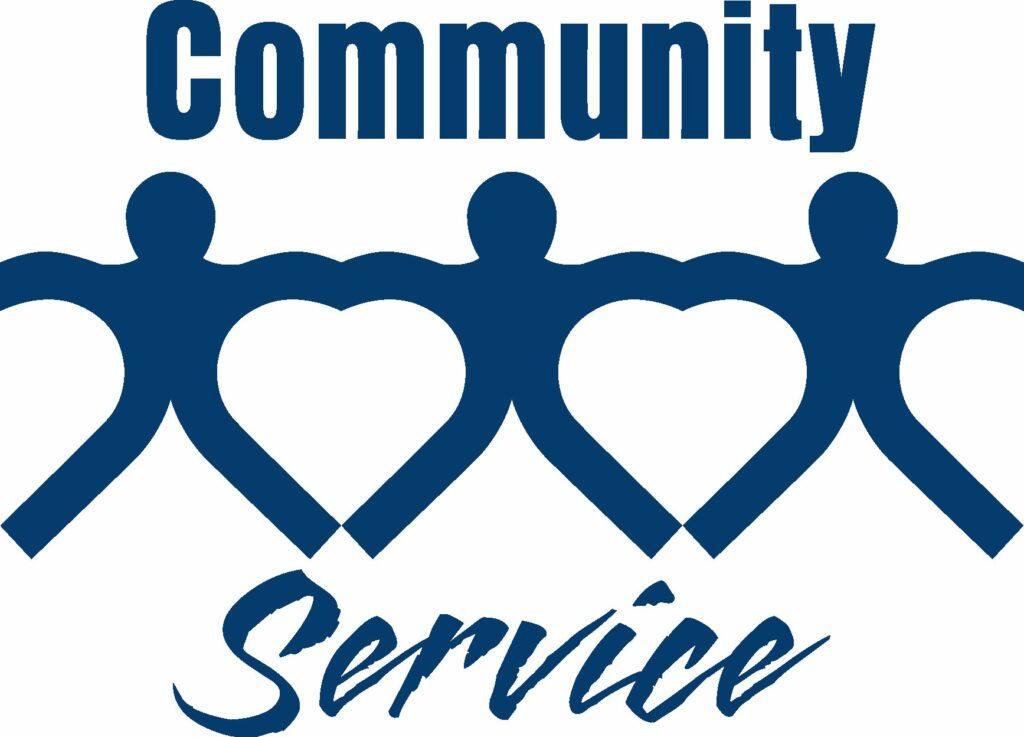7 Amazing Alternatives to Capital Punishment: Restorative Justice, and More.
Table of Contents
Introduction
Capital punishment, also known as the death penalty, is the practice of executing individuals who have been convicted of certain crimes, usually those deemed to be the most heinous and serious offenses. The use of capital punishment has a long and controversial history, dating back to ancient times. While some argue that capital punishment serves as a necessary deterrent and provides justice for victims and their families, others argue that it is morally unjustifiable and ineffective in preventing crime.
The debate over capital punishment has led to heated discussions around the world, with some countries choosing to abolish it entirely while others continue to uphold its use. This topic remains one of the most contentious issues in the fields of law, justice, and human rights, and raises important questions about the role of the state in administering justice and the value of human life.
Alternatives to the Capital Punishment
- Restorative Justice
- Transformative Rehabilitation
- Community Service
- Life Imprisonment without Parole
- Victim-Offender Mediation
- Collaborative Justice
- Mental Health Treatment
Restorative Justice
Restorative justice is an approach to justice that emphasizes repairing the harm caused by crime rather than punishing offenders. This approach brings together the victims, offenders, and the community to address the harm caused and find ways to make things right.
Restorative justice recognizes that crime is not just a violation of the law, but also a violation of relationships and trust within the community. By bringing together all those affected by a crime, restorative justice seeks to repair those relationships and rebuild trust.
The process of restorative justice typically involves a facilitated conversation between the victim and offender, where they discuss the impact of the crime on the victim and the community. The offender takes responsibility for their actions and works with the victim and community to find ways to make amends and repair the harm caused. This can include financial compensation, community service, or other forms of restitution.
Restorative justice has been shown to be effective in reducing recidivism, promoting rehabilitation, and providing closure for victims. It can be used in a variety of contexts, from juvenile justice to workplace disputes to community conflicts.
While restorative justice is not a replacement for traditional criminal justice, it offers a valuable alternative that focuses on healing and restoration rather than punishment. By embracing restorative justice, we can create a more just and humane criminal justice system that prioritizes the needs of victims and the community while also holding offenders accountable for their actions. Therefore, restorative justice is a good alternative to capital punishment.
Transformative Rehabilitation
Transformative rehabilitation is an approach to the rehabilitation of offenders that focuses on transforming the offender’s character and behavior. It recognizes that many offenders have underlying issues, such as addiction, mental illness, or trauma, that contribute to their criminal behavior. Instead of simply punishing offenders for their crimes, transformative rehabilitation seeks to address these underlying issues and help offenders become productive members of society.
This approach to rehabilitation typically involves a combination of education, vocational training, and mental health treatment. Offenders are provided with the skills and support they need to address their issues and overcome the challenges that led to their criminal behavior. This can include anger management classes, substance abuse treatment, therapy, and other forms of counseling.
The goal of transformative rehabilitation is to not only prevent future criminal behavior but also to help offenders become positive contributors to society. By addressing the root causes of criminal behavior and providing offenders with the tools and support they need to make positive changes in their lives, transformative rehabilitation can reduce recidivism and promote long-term success.
Transformative rehabilitation has been shown to be effective in reducing crime and helping offenders reintegrate into society. By moving away from punitive approaches to rehabilitation and embracing transformative rehabilitation, we can create a more just and humane criminal justice system that prioritizes the rehabilitation of offenders and promotes the safety and well-being of the community. Therefore, it is better than capital punishment.
Community service
Community service is an alternative to traditional forms of punishment that involves offenders performing unpaid work in the community. This alternative recognizes that offenders can make a positive contribution to society and can learn valuable skills through performing community service.
Community service can take many forms, including cleaning up public spaces, assisting with community events, working with charities, or providing assistance to the elderly or disabled. Offenders are typically required to perform a set number of hours of community service as part of their sentence.
The benefits of community service are twofold: it provides a way for offenders to make amends for their actions and give back to the community, and it benefits the community by providing valuable services and fostering a sense of civic responsibility.
Community service has been shown to be an effective alternative to capital punishment, particularly for nonviolent offenders. It can also provide a valuable opportunity for offenders to learn new skills and develop positive relationships with members of the community.
By embracing community service as an alternative to traditional punishment, we can create a more just and humane criminal justice system that prioritizes the rehabilitation of offenders and promotes the well-being of the community.


Life Imprisonment without Parole
Life imprisonment without parole is a form of punishment that involves the offender being sentenced to spend the rest of their life in prison without the possibility of parole. This means that they will never be released from prison and will spend the remainder of their life behind bars.
Life imprisonment without parole is often considered a harsher punishment than capital punishment because it involves the offender facing the consequences of their actions for the rest of their life. It is typically reserved for the most serious crimes, such as first-degree murder.
While life imprisonment without parole can be an effective way to punish offenders and protect society from dangerous individuals, it is not without its criticisms. Some argue that it is inhumane and cruel to sentence someone to spend the rest of their life in prison, and that it denies them the opportunity to rehabilitate and make positive changes in their life.
Additionally, the cost of keeping someone in prison for their entire life can be significant, and some argue that these resources could be better spent on rehabilitation and other forms of punishment.
Overall, life imprisonment without parole is a complex issue that raises questions about the purpose of punishment and the role of the criminal justice system in society. While it can be an effective way to punish serious offenders and protect society, it is important to consider the ethical and practical implications of this form of punishment.
Victim-Offender Mediation
Victim-offender mediation is a process that brings together the victim of a crime and the offender in a facilitated dialogue with the goal of repairing the harm caused by the offense. This process is often used as an alternative to capital punishment and aims to promote accountability, restitution, and healing for both the victim and offender.
During the mediation process, a trained mediator facilitates a dialogue between the victim and offender, allowing them to communicate their perspectives and feelings about the crime. The mediator works to ensure that the conversation remains respectful and productive, and encourages both parties to take responsibility for their actions and work towards a solution that addresses the harm caused by the offense.
Victim-offender mediation has several benefits over capital punishment. First, it allows the victim to have a voice in the process and to participate in the resolution of the crime. It also allows the offender to understand the impact of their actions and take responsibility for their behavior, which can promote a sense of accountability and prevent future criminal behavior.
Additionally, victim-offender mediation can be a more cost-effective and efficient way of resolving a crime, as it avoids the lengthy and often costly legal process of traditional forms of punishment.
While victim-offender mediation is not appropriate for all crimes, it can be a valuable tool in promoting healing and accountability in cases where both parties are willing to participate. By focusing on the needs of the victim and the offender, rather than solely on capital punishment, victim-offender mediation can create a more just and humane criminal justice system that prioritizes the well-being of all parties involved.
Collaborative Justice
Collaborative justice is a term used to describe a range of criminal justice programs and practices that involve collaboration between different parties, such as law enforcement, community organizations, and individuals involved in the criminal justice system.
The goal of collaborative justice is to create a more holistic and community-focused approach to justice that addresses the root causes of crime and promotes rehabilitation and community well-being. This approach recognizes that traditional forms of punishment, such as incarceration, often fail to address the underlying issues that lead to criminal behavior.
Collaborative justice programs can take many forms, including restorative justice, community policing, problem-solving courts, and diversion programs. These programs aim to bring together different stakeholders in the criminal justice system, including law enforcement, community members, and offenders themselves, to work towards a common goal of preventing and addressing crime.
One of the key benefits of collaborative justice is that it promotes a more inclusive and participatory approach to justice. By involving community members and organizations in the process, collaborative justice programs can help to build trust and understanding between different groups and promote a sense of shared responsibility for community safety.
Collaborative justice also has the potential to be more effective and cost-efficient than traditional forms of punishment. By addressing the root causes of crime, such as poverty, mental illness, and addiction, collaborative justice programs can prevent recidivism and reduce the need for costly incarceration.
Overall, collaborative justice offers a promising alternative to traditional forms of punishment that prioritizes community well-being and rehabilitation. By working together to address the underlying issues that lead to criminal behavior, we can create a more just and humane criminal justice system that promotes healing, accountability, and positive change.
Mental Health treatment
Mental health treatment of offenders is an alternative to capital punishment that aims to address the underlying mental health issues that may have contributed to an individual’s criminal behavior. This approach recognizes that many offenders have complex mental health needs that require treatment, and that addressing these needs can be a more effective and humane way of promoting rehabilitation and reducing recidivism than punitive measures.
Mental health treatment of offenders can take many forms, including individual and group therapy, medication management, and other forms of support and treatment. This approach recognizes that mental health issues are often intertwined with other factors that contribute to criminal behavior, such as poverty, trauma, and substance abuse, and aims to address these issues in a holistic and compassionate way.
One of the key benefits of mental health treatment for offenders is that it can be more effective at reducing recidivism than capital punishment. Studies have shown that offenders who receive mental health treatment are less likely to reoffend than those who do not, as treatment can address the underlying factors that contribute to criminal behavior.
Additionally, mental health treatment is often more cost-effective than capital punishment, as it avoids the high costs of lengthy legal proceedings and incarceration. By addressing the underlying issues that contribute to criminal behavior, mental health treatment can prevent future crimes and promote positive change in individuals and communities.
Overall, mental health treatment of offenders is a promising alternative to capital punishment that prioritizes compassion, rehabilitation, and community well-being. By recognizing the complex needs of offenders and providing the support and treatment they need to address mental health issues and other contributing factors, we can create a more just and humane criminal justice system that promotes healing, accountability, and positive change.
Conclusion
In conclusion, capital punishment is a highly controversial issue that has been debated for decades. While proponents argue that it is a necessary form of justice and deterrence, opponents argue that it is inherently flawed and inhumane. Despite ongoing debates, many countries around the world have abolished capital punishment, recognizing that there are more effective and humane alternatives that can promote rehabilitation, accountability, and community well-being.
Alternatives to capital punishment such as restorative justice, transformative rehabilitation, community service, life imprisonment without parole, victim-offender mediation, and collaborative justice offer promising approaches to addressing the complex issues of crime and justice. These approaches prioritize compassion, healing, and rehabilitation, recognizing that criminal behavior often stems from a range of underlying factors such as poverty, mental illness, trauma, and addiction.
In the end, the question of capital punishment is not just a legal or political issue, but a deeply moral one. By promoting alternatives to capital punishment that prioritize human dignity, compassion, and community well-being, we can create a more just and humane criminal justice system that promotes healing, accountability, and positive change for all.
FAQs
How effective are alternative punishments compared to the death penalty?
The effectiveness of alternative punishments compared to the death penalty is a subject of debate. Proponents argue that alternatives, such as life imprisonment or rehabilitation programs, can achieve the goals of punishment, deterrence, and public safety without the irreversible nature of capital punishment. Critics claim that the death penalty has a unique deterrent effect, while others highlight concerns about wrongful convictions. Overall, the effectiveness of alternatives depends on various factors, including the specific context, societal values, and the goals of the criminal justice system.
What are the arguments in favor of using alternatives to capital punishment?
There are several arguments in favor of using alternatives to capital punishment:
1) Human Rights: Alternatives uphold the fundamental right to life and dignity, eliminating the irreversible and inhumane nature of the death penalty.
2) Rehabilitation: Alternatives provide opportunities for rehabilitation and reintegration into society, allowing individuals the chance to reform and contribute positively.
3) Cost-Effectiveness: Alternatives can be more cost-effective than capital punishment, as the lengthy legal processes associated with death penalty cases can be financially burdensome.
4) Avoiding Wrongful Convictions: The use of alternatives helps prevent the irreversible tragedy of executing innocent individuals, mitigating the risk of wrongful convictions and miscarriages of justice.
Are there any countries or jurisdictions that have successfully abolished the death penalty and implemented alternative sentencing?
Yes, several countries and jurisdictions have successfully abolished the death penalty and implemented alternative sentencing. For example, countries like Canada, Australia, and most European nations have abolished the death penalty and rely on alternative punishments such as life imprisonment without parole or long-term incarceration. Additionally, some countries have implemented restorative justice programs, community service, or rehabilitation-focused approaches as alternatives to capital punishment. These examples showcase the feasibility and effectiveness of alternative sentencing in the absence of the death penalty.


Great article! It presents a variety of alternatives to capital punishment that prioritize healing, rehabilitation, and community well-being. This is a valuable and important perspective on this complex issue.
Thanks for sharing your views about this article.
Do share this article with others so they can also acquire the valuable information present in this article.